Episodes
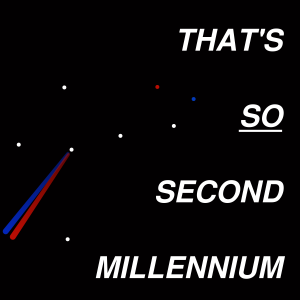
Monday Jan 14, 2019
Episode 042 - TSSM in 2019, part 2
Monday Jan 14, 2019
Monday Jan 14, 2019
What sense can we make of the ancient and medieval idea that "the soul is the form of the body" in the light of contemporary neuroscience and psychology?
Highlight this idea's differences from Platonic and Cartesian dualism.
History of psychology as a discipline. Psychology has not evolved (a) master paradigm(s) that compel the bulk of the field to adhere to them the way that plate tectonics did for geology, Newtonian classical physics and then quantum and relativity did for physics, etc.
Peace of Soul (Fulton Sheen) remark that psychology has been furtively recycling Christian ideas and passing them off as new for a long time
Examining the convergence points of the advice for living from the Bible and Tradition, modern psychology, and the contemporary self-help / New Age-y movement that continues to spread and adapt through large sectors of modern culture.
Self-esteem, humility...
Confidence, faith, negative tapes...
Twelve Step spirituality (Richard Rohr and the intense overlap between 12 Step and Catholic spirituality)
Even many of us who are explicitly Christian have internalized a kind of Lutheran / Jansenist belief that we are so terrible that, in essence, God made a mistake in going to all this effort to save us, because we're not worth it. This is one of a number of areas in contemporary Catholic and Christian culture where we have let our understanding of Scripture and Tradition get very warped and imbalanced.
Issues surrounding how the Christian and scientific understanding of universal history could fit together.
What will "the end of the world" look like? Will it be the end of the whole universe or not? Will there be human colonies on other planets, orbiting other stars? How would the Apocalypse play out then?
You can find That's So Second Millennium at all of these places:
tssm.podbean.com
paggeology.net/blog
@infamousDrG on Twitter
That's So Second Millennium page on Facebook
giesting -at- alumni.nd.edu is Paul's email address
Please be in touch with your feedback, ideas for new episodes, and conversation of any kind!

Friday Jan 11, 2019
CNAG: Law of Attraction
Friday Jan 11, 2019
Friday Jan 11, 2019
Let's do a really scary one.
Law of Attraction. So far as I can tell, this is a very, ummm, "results-oriented" take on the virtues of faith and hope. Jen Sincero circles around this a fair bit, not always calling it by that name. It involves picturing some situation, way of life, person, or thing that you really want in really vivid detail, surrounding yourself with pictures and other reminders of it, dressing and acting and talking as if it were already present and the way you want yourself to look and feel in that situation, and trusting that "Source Energy" or "the Universe" will "start pulling it in."
Another one of Jen's kind of terrifying phrases that really stuck in my head was "having a craft day with God." To be honest, I took it seriously enough that the other day I mashed it up with a suggestion from this little booklet on prayers and devotion to St. Joseph that I did the following:
- I found a holy card image of the boy Jesus and Joseph doing some carpentry (looking a lot more like a happy father and son team than anything in MY personal experience).
- I attached a list of five things I want to change about my life down the right side:
- Victory over addictive habits
- Greater sense of closeness to God
- Figuring out more what this "love" business is and actually doing some of it
- Focus, diligence, and peace in using my gifts
- Freedom to love instead of codependency
- I made this my desktop and laptop wallpaper.
Anecdotal evidence and all, but I'll let you know how it goes...
There are at least four possibilities here, which sound somewhat mutually exclusive, although as is usually the case in this marvelously intricate reality we inhabit, they really aren't.
1: This is hokum. The people who believe in the Law of Attraction are just the lucky ones. Random processes brought them enough of what they wanted, their confirmation bias kicked in, and now they trumpet their good fortune as if they actually did anything to cause it.
2: This is dressing up a very reasonable psychological effect as New Age mumbo-jumbo. If you focus yourself enough on something, and also think positive instead of looking for ways to self-sabotage, you'll capitalize on the actual opportunities that come up instead of tuning them out and making sure that the ones you see don't help you.
3: Sometimes this is actually black magic. There are demonic forces quite happy to divert you from God by showering you with enough wealth, sexual pleasure, power, or what have you and doing it in such a way that you can fool yourself into thinking that these things are being provided for you by a benevolent spirit.
Cathy Heller (whom by now I love dearly) and Jen Sincero have said a lot about money not being the root of all evil and having a negative set of attitudes about money. A great deal of what they say has to be true; I absolutely believe there is a sort of "starving artist complex" that keeps people from asking a reasonable fee or wage for what they do, and keeps them in crappy situations making those crappy wages, and that, further, this attitude is due in large part to a post-Christian, post-Marxist vague sense of the ickiness of wealth.
So far as I know, even the New Testament does not say "money is the root of all evil."
It does, however, say "the love of money is the root of all evil" (1 Timothy 6:10; see also Hebrews 13:5, and just basically listen to how this Jesus guy EVER talks about wealthy people in his parables).
4: Often this is actually more or less the case. Although obviously you run into difficulties believing that a good God will give you things that are actually bad for you, the aforementioned sort of hang-ups keep a lot of people from asking for the things that they actually legitimately want, things that Jesus of Nazareth actively assured us that his Father wants very much to give us.
Lord knows that I, personally, concluded as a boy that basically everything I wanted and longed for in life was something that God wanted me not to have. I can testify that that attitude got me exactly nowhere, certainly nowhere that involved anything I would recognize as virtue or holiness or loving people or helping them in any useful sort of way. I have been a miserable failure at a lot of things, probably precisely because I have been just straight miserable and convinced that every desire I ever had was evil.
I'm committing myself to experimenting with a very different approach for the other half of my life.
CNAG is the Catholic-New Age Glossary... not backed by Webster's or any other authority. These meditations are here on That's So Second Millennium because they are an attempt to find maximum harmony between different strands of psychology and spirituality as they are being explored and lived out in Western culture today. It flows from a respect for people's reasons for doing what they do and thinking what they think.

Monday Jan 07, 2019
Episode 041 - TSSM in 2019
Monday Jan 07, 2019
Monday Jan 07, 2019
Themes we'd like to grapple with in the Year of Our Lord, 2019, and beyond:
Last year was largely about the intellectual challenge leveled by many against religion, and we will continue talking about that as the podcast moves forward.
Paul's mission this year to work through Road to Reality
This year we also want to broaden the scope to include places where religion and faith converge, which means we're going to discuss psychology.
Looking forward to the SCS conference topic for this coming year: what it is, and has been, to be human. Neuroscience and what it implies for anthropology, and where it meets Catholic Christian anthropology coming the other way.
What is consciousness, anyway? What parts of the brain seem to be involved, and what do they do?
What is free will, anyway? Where are those breakpoints where the soul would have to affect the body in order for that to even work?
Crisis points in the way people in the post-Christian West approach the world.
Center for Ethics & Culture annual conference in 2018: Wilfred McClay & John Waters
"we care about everything, but without God... we have responsibility for everything, but we know that we are flawed and unable to provide solutions"
Post-Christian in this context includes both people who have explicitly renounced the Christian faith of the West and those who have a Christian identity in their back pocket somewhere but in reality are not relying on Jesus Christ or his teachings to guide their lives in any conscious way.
Christianity is a demanding religion. If you suck away all the grace and help it promises, but leave some of its demands for social justice or purity of intention, you have a recipe for constant internal condemnation.
Link:
Wilfred McClay (University of Oklahoma) on “Guilt in the Immanent Frame”, and John Waters on “The Importance of Not Being God: A Higher Power Is Indispensable for Human Beings and Human Societies”
No, not THAT John Waters.

Thursday Jan 03, 2019
A Catholic - New Age Glossary (CNAG)
Thursday Jan 03, 2019
Thursday Jan 03, 2019
So this business of being human is rather more difficult than it first appeared, isn't it? Have you found yourself feeling that way from time to time, perhaps increasingly so as you aged from childhood to youth to early adulthood?
Having a voracious hunger for information and insights, and a consuming fear of missing out on whatever the right answer actually is, I have wandered through many intellectual landscapes to at least see the sights and hopefully capture some sort of clue to living on the way through. Thomas Aquinas, among others, deserves some credit for this. When I had been prompted in his direction by Dante and John Ciardi (as I discussed here) and picked up the Summa Theologiae to read some articles at random, I was struck by the fastidious way in which he tried to give the maximum possible credit to every one of his wide range of sources.
I came away with the suspicion, not conscious in quite this many words at that early date, that probably every human being who has taken the time to write something down has thought something through far enough to merit my efforts to understand what they've said and digest it and incorporate as much of it as I can into my own worldview. I can at least note down that I think they are saying something essentially the same as items I already believe, and let them convince me to consider those items more closely. Maybe I've forgotten them, or never made enough of an effort to let them change my actual thoughts, words, and behaviors.
Two years ago, in January of 2017, I was on my way out of yet another temporary position in academia. I had books that I'd wanted to write for over 20 years, a journey to at least one edge of mathematics and physics that I'd allowed myself to give up on, and I had been working a Twelve Step program long enough to have gotten behaviorally sober but still feeling bereft of purpose. I was just getting into listening to podcasts, and I became a founding subscriber to Don't Keep Your Day Job (I feel like I ought to have a bumper sticker or a secret handshake or something).
That podcast covers a lot of ground, but one thing it has pushed in front of me is the contemporary phenomenon of sort of "New Agey" self-help practices. In particular, for whatever reason I felt moved to actually buy the book of one guest, Jen Sincero, with the memorable title You Are a Badass. This book is stuffed to the gills with hilarious woo-woo terminology like "raising your frequency" and Law of Attraction stuff and so forth. Of course, you can get it all kinds of other places, the vast majority of which I have not yet explored.
The thing about it is that I'm pretty sure there's something underneath all this weird cartoon spirituality, sometimes a murky distance below the surface, occasionally behind a piece of something I reject for very cogent reasons, but there is a substructure that makes sense to me. It might make sense to other people and enrich their lives if it weren't encoded in such an off-putting way.
Thus, another recurring feature for this year will be CNAG, my attempt at a Catholic - New Age Glossary, where I will take a term from this milieu and give you my best interpretation of it in Catholic Christian terms. Along the way I will point out some reasons why understanding that term and its usage might help us in our tired and underconfident contemporary Catholic culture to appreciate the significance of teachings we've forgotten, never bothered to learn, or are being called to understand in a new way given the strange new world we inhabit.
CNAG is the Catholic-New Age Glossary... not backed by Webster's or any other authority. These meditations are here on That's So Second Millennium because they are an attempt to find maximum harmony between different strands of psychology and spirituality as they are being explored and lived out in Western culture today. It flows from a respect for people's reasons for doing what they do and thinking what they think.
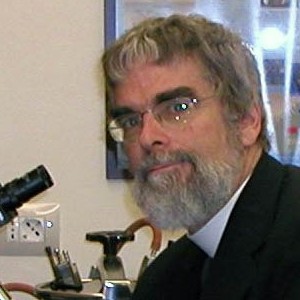
Monday Oct 29, 2018
Episode 031 - Br. Guy Consolmagno: Teaching Science and Human Nature
Monday Oct 29, 2018
Monday Oct 29, 2018
Paul moves from popular books to Br. Guy's 1990s planetary science textbook, Worlds Apart which Paul switched to in 2015, despite its age, precisely because of Br. Guy's explicit acknowledgment that "students want to learn about THE PLANETS." The chapters of the book therefore start with a saga of some planet, and then focus in on some process that is well exemplified on that planet. Other textbooks try to focus on processes and lose ME, let alone my students, most of whom were headed toward high school teaching.
Br. Guy goes on from the subject of his books to talk a little about John Scalzi's take on the common advice to authors to "kill your darlings"..."the failure mode of clever is idiot." (I am not unfamiliar with John Scalzi, who is certainly a master of the craft: see my review of Old Man's War on Goodreads.)
Bill references the science & religion initiative at the McGrath Institute at Notre Dame, to which Br. Guy has contributed. The Institute tries to form high school teachers with a sense of the complementary, rather than adversary, nature of science and faith. Br. Guy goes on to talk about how hard a high school teacher's job is, and the need for enthusiasm in presentation. If you are listening to two enthusiastic people talk shop about almost any topic, however little you yourself know about it, you get drawn in. That's the goal, except most high school teachers have to do it by themselves.
A teacher that can maintain enthusiasm and also model comfort with not knowing the answer and intellectual humility..."I don't know; let's go find the answer"...is a great gift to insecure, "self-conscious but not self-aware" teenagers.
Paul probes Br. Guy about the modern attitude of trying to discard as much of the past as possible. Br. Guy comments how living in Italy gives you perspective on how the attitude has shifted from the medieval attitude (discussed in great depth by CS Lewis in The Discarded Image) of reverence for the past, whose achievements we could never match, to the modern one. Rome gives you the perspective that while science and engineering may have advanced, art and architecture have not. Humanity can only progress so far...we can't get away from original sin. We do things we know are wrong, destructive, etc. That's why Twelve Step programs exist. A great 20th century tragedy, as has been noted many times, is the failure of great schemes (like communism) for revising society in some theoretically perfect new form.
A chance reference to Shakespeare, and then to Star Trek VI (of course), leads us off into a discussion of language and the way it shapes our lives, from the fun people have had since Tolkien inventing whole new languages, to the difference in what Sarah cooks for Abraham's visitors in English (yuck) versus Italian. Br. Guy makes the provocative statement that one has to learn more new words in freshman biology than in freshman French. When you learn philosophy, you learn new words, and with those words (if you're really learning them) you learn new ways of thinking.
As a final note, that's why you need others to truly learn and work in a subject...or in a faith. The Ethiopian that Phillip baptized in the Acts of the Apostles had a hard row to hoe.
https://vofoundation.org/faith-and-science
Books mentioned in the interview:
Wind, Sand, and Stars by Antoine de Saint-Exupery
Unapologetic by Francis Spufford
The Rock by T.S. Eliot
Image courtesy Robert Macke (wikimedia Commons)
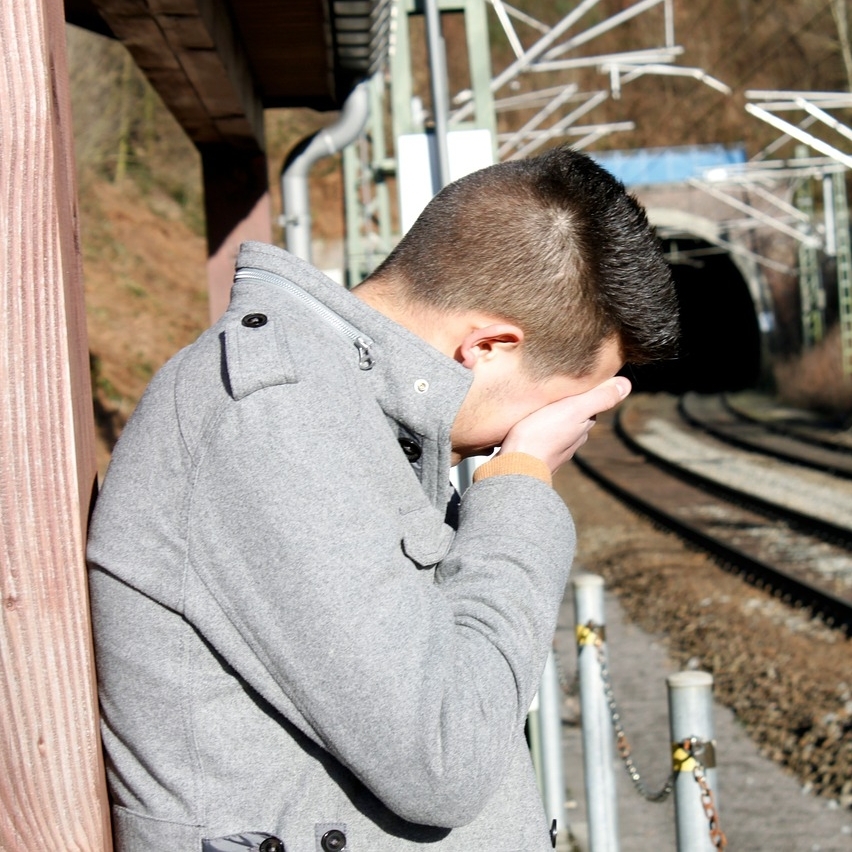
Monday Sep 03, 2018
Episode 023 - Clericalism, Sex Abuse, Addiction, and Hope
Monday Sep 03, 2018
Monday Sep 03, 2018
Discussion notes:
We start to discuss what everyone in the Catholic Church has been discussing for over a month now, which is the new storm of revelations about sexual abuse of children, youths, and seminarians by priests and bishops.
Parallels between modern day and the 17th century. Nicolaus Steno (the subject of our last podcast) lived in a tumultuous time, and many of his contemporary churchmen, Protestant and Catholic both, do not cut an inspiring figure on the stage of history. Steno tried to live a better life, but it's easy to see his heroic efforts as useless and even a bit misguided. He likely wore himself to death conforming to an ideal that was not quite what Jesus of Nazareth said or intended. (You can say that about many priests in the history of the Church; Michael McGivney and Augustine Tolton are arguably analogous figures here in America.)
Why are we bringing this up on this podcast? The purpose of the podcast is to explore whether faith and reason are compatible. Since both Bill and I believe that the Catholic faith is both reasonable and true, we have and haven't made a secret of the fact that there is an apologetic (in the technical sense of "Christian apologetics") aspect of what we're doing here.
Clerical scandals such as the one that we're facing now are an impetus to some people to reject the Catholic faith as, analogously, the misbehavior of leading members of other faiths, political, and philosophical movements can lead others to reject those as well. We feel it worth while to take one podcast to examine whether that makes sense rationally as well as emotionally.
The collapse of cultural Catholicism in perhaps its last bastion, Ireland...more on this later.
Bill: "All creation is crying out for a new day of change..."
Why I find the 17th century so depressing...a focus on external statements of faith rather than conversion of heart. The massive hypocrisy of Christians fighting war after war against other Christians, whether in the name of their own religious doctrine or, even more so as the century wore on, simply using that as a cover for their own petty political goals.
The conflict between faith and science depends on a lack of intellectual humility. It's a difficult human weakness to overcome (difficult, not impossible) to actually take the observations and reasoning of others seriously and let it influence one's own thinking, rather than just bulling ahead and believing what one prefers to believe.
Paul's followup:
Why clerical scandal is not intrinsically a logical argument against faith. Why nevertheless it is certainly a problem in an indirect sense: if these men can't or won't live up to the standards of Christianity, how can others?
The long decay of the medieval model of the Church, with bishops as wealthy, powerful political figures. The intrinsic tension between this model and the New Testament, recognized throughout the centuries. The ease with which prelates in such a scheme can get caught up in contemporary intellectual currents. The 20th century myth that sexual activity (and a great many other things, like consumer goods and hour long automobile commutes) is a necessity like eating or sleeping. The temptation to enter the priesthood for cultural reasons and to be an authority figure in one's community.
Problems on both the "liberal / progressive" side of modern culture and "conservative" side. Liberal: to reject the testimony of history and wave about in the current of contemporary opinion. Conservative: to adopt a conformist attitude that's primarily about not doing things proscribed by an older culture and one's contemporary conservative subculture. Both attitudes lack strength. One gives in to the noise in the broader culture; the other, being cut off from the real God of love and action, can find itself lacking the ability to live up to the negative goals of celibacy or sexual exclusivity.
What do WE do about it all?
Is there a way to volunteer to help the victims in your diocese? Are you in, or should you get into, a position to help change the way the institutions of the Church--or any other church or organization you are part of and care about--work so that this sort of thing is avoided in the future?
If not, or if a frank discernment of your life situation pushes you in a different direction, what else can you do to "look after widows and orphans in their need" (James 1, reading from last Sunday)? What in your life is most important that you're not doing? What do you need to weed out in order to focus on that?
I myself recognize that in the tension between 1) my work: my consulting, my writing, my scholarship and 2) my private life, which is in desperate need of focus and effort to make it more livable and worthy of Jesus Christ, I think I am also badly in need of 3) finding additional ways to serve others. Where do I do that and how?
If YOU happen to be a victim of sexual or physical abuse, please report it and please find help. You have been wounded, and there are places where you can find healing.
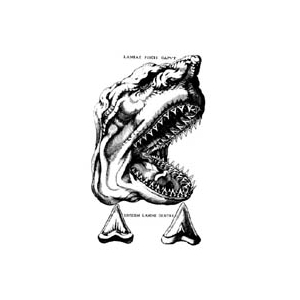
Monday Aug 20, 2018
Episode 021 - Hypocrisy and Geology: Battlegrounds Between Faith and Science
Monday Aug 20, 2018
Monday Aug 20, 2018
Bill and I start off by discussing some of the reasons why there is such animosity against faith and such a tendency to credit the claim that science and religion are mutually incompatible.
I think we miss a great deal of the point if we do not take into account the relentless critique Christianity has mounted OF ITSELF over the past half millennium. The Reformation splintered the Christian nations and sparked unprecedented bloodshed between Christians. There had been terrible episodes before, but these wars, culminating in the Thirty Years' War, were on a new scale. The massive hypocrisy of Christians killing Christians, and the continuing hypocrisy of Christian clergy enjoying positions of wealth and privilege in both Catholic and Protestant nations, sparked further critique, leading to the Enlightenment and modern liberalism and progressivism. I ask you...do you think anything like modern progressivism, which bases itself on advocating for the poor and the repressed, could have arisen except as a Christian critique of Christianity?
In any case, we continue down to the present to be living in the dwindling, waning days of that union between Church and State, even in the US, and the scandals from that are still with us, as we know this month in Pennsylvania and with the spectacle of Cardinal McCarrick. That provides powerful impetus to look for other sticks to beat Christianity with.
It doesn't help that there are also people, in numbers enough to be visible, who really do espouse a form of religion that is contradictory to science. The Bible itself makes no claim to be the only book worth knowing, but the post-Reformation world has quite a few people willing to make that claim on its behalf.
Turning back to the intellectual issues within the debate itself, I bring up the question: why does so much of the fracas around science vs. the Bible center on biology, when the real question is the Bible vs. geology? Biologists have no real basis for determining the rate and overall progress of evolution if they were not given access to the fossil record and geological time scale...by geologists. Further, there is a great deal more of the Bible that makes claims about geology than about biology. (It's still an extremely small fraction, but of that small fraction...)
In fact, as the science of geology got started with people like Nicolaus Steno (his sketch of a shark and shark's teeth is the image for this episode), one of their first tasks was to try to evaluate the record of stones and sediment for evidence of Noah's Flood. One of the first crises in geology was dealing with the failure of this quest to find evidence for a global flood (which may or may not be an accurate translation of the intent of the writer of that part of Genesis, but that's another story).

Monday Aug 13, 2018
Monday Aug 13, 2018
Today was just one of those days where I needed a script to get through a three minute intro. I summarize the interview afterward.
Paul: "Welcome to Episode 20 of That's So Second Millennium.
"I'm Paul Giesting, a geologist, researcher, consultant, writer, and your co-host on this journey through the beautiful frontier country between science, philosophy, and religion as they stand here at the beginning of the third millennium. My opposite number is Bill Schmitt, a journalist, radio personality, and dab hand with the accordion.
"This week Bill managed to snag an interview with Father Robert Spitzer, who runs the Magis Center out on the West Coast and is the host of Father Spitzer's Universe on EWTN. He's published a number of books, which tend to have provocative titles; the one that I've read is called New Proofs for the Existence of God. That's an exciting read for anyone interested in the subject matter of this podcast, and travels through scientific and philsophical and mathematical arguments like the debate over fine tuning--whether Someone had to deliberately create the universe as it is, given how tightly constrained many physical constants seem to have had to be in order for any of the complex structures of atoms, planets, and stars to form and allow the appearance of life--and the question of whether it really makes any sense to speak of a "reverse infinity" and a universe that has always existed. Indian thinkers, Plato and Aristotle, and even Thomas Aquinas either thought that the universe has always existed or at the very least that there is no logical contradiction in saying that it could have always existed in time, even while Aristotle and Thomas asserted that the universe could not have an infinite chain of causes and needed a Prime Mover. Spitzer, in New Proofs, brings forward arguments from the philosophy of mathematics that perhaps this idea of a reverse infinity is not really logically coherent at all...a topic for one or more future podcasts.
"For today, Bill talked to Father Spitzer about the state of culture and the demographics of young people leaving the practice and even the identification of faith and citing as one reason the perceived contradiction between science and faith, initiatives to fight that, and the real absurdity of this perceived contradiction. With that I'll let Bill take it away."
Bill: Introduces our podcast and the motivations: value to filling holes in the culture, addressing the young.
Spitzer: Most recent Pew survey in 2016 comments on the high fraction of young people not just leaving the Church for a while, not just leaving a Church, but leaving faith altogether and becoming agnostic or atheistic. 49% of those leaving cite the perceived contradiction between science and religion as a key reason.
Bill: Proposes two reasons why that might be: was this gap "percolating" for a long time and just not being addressed, or is there a recent development pushing this.
Spitzer: It's both. The gap has been there for a long time [below the surface]. There are a lot of internet resources, social media outlets devoted to pushing an atheistic worldview. This feeds back into schools. Science teachers and professors that publicly espouse atheism meet audiences that are already primed that direction and certainly have no answers to contradict what they're being told.
One of his initiatives is crediblecatholic.com, where there is a bundle of resource modules presenting core arguments for the consistency of the Catholic faith and science and even arguments that discoveries in science point toward faith, not unbelief, in a Creator as the more sensible interpretation of reality. Pushing to get this curriculum into every diocese and every confirmation class and Catholic school curriculum.
Example topics: the Shroud of Turin, evidence for an intelligent Creator, near death experiences, evidence for a transphysical soul, 20th and 21st century accounts of miracles that have been thoroughly investigated with scientific methods.
Bill: The New Atheism is almost built on being shallow, on an attitude of mockery rather than on a serious analysis of evidence. This approach is the opposite: really multi-faceted.
Spitzer: Cardinal Newman talked about the "informal inference" to faith. It's not one argument; it's about twenty lines of reasoning. In our day we have if anything more of these, all the way from philosophical to scientific arguments to faith on the large scale to countless examples of miracles that have withstood thorough scrutiny by skeptical researchers. This is what the Credible Catholic approach is trying to convey.
We've tested the curriculum on beta groups of students in Austin, New York, Los Angeles and gotten remarkably high marks from these groups (97% positive / very positive, rated anonymously).
Bill: Pope Benedict foundation awards for "expanded reason" and the problems with positivism, scientism.
Spitzer: The logical contradiction at the very foundation of Vienna Circle positivism: it makes the self-contradictory claim that "the only valid knowledge is scientifically verifiable knowledge"...good luck checking that statement by scientific methods. That's a school of thought from the turn of the 20th century; we in the Church have been wrestling with it for a long time.
Reminiscence about a debate on Larry King Live with Stephen Hawking (et al.) and the claim that science had replaced philosophy...this is likewise straightforwardly impossible; science and philosophy do fundamentally different things. For that matter, so do science and mathematics.
Bill: A contradiction that I see more than ever: our culture and educational system is arguing for atheism and at the same time dumbing down our understanding of basically everything, while there is a growing s(S)ociety of Catholic Scientists...[a quick back and forth]
Spitzer: Artificial intelligence's potential is overrated when it is claimed that it can become creative in anything like a human fashion. It can't find new truths; they don't love [or will] or have any of the transcendentals. Computers are marvellous tools that, *in tandem with us*, can take us to new places we could not get without this kind of effort multiplier...
Studies on religious and non-religious affiliated groups, with the latter having much higher rates of maladaptions: suicide, substance abuse, impulsivity, depression, etc. Augustine's comment about our hearts being restless until we rest in God seems to be empirically corroborated.
Closing: CredibleCatholic.com, Notre Dame initiatives to educate high school science teachers on the interrelations between faith and science.
"So there we have it. I also want to thank Father Spitzer for taking the time to give this interview. We hope to present many more interviews as That's So Second Millennium matures and gets going. The point of the podcast has always been to get conversations started about these core issues, whether and how to be a logically coherent believer in the modern age. It's started with these conversations between Bill and I, but the point is to move outward and engage with more of you. The time is rapidly coming to expand this outreach another step or two, through social media and ordinary human interactions. Right now you can check out the Facebook page for That's So Second Millennium, and you can leave ratings and reviews on one or more of our podcast servers, Apple, Google Play, Stitcher, or Podbean."
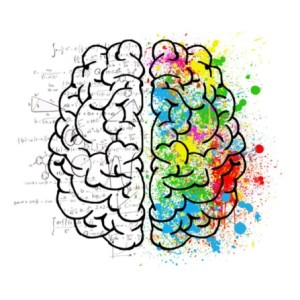
Monday Aug 06, 2018
Episode 019 - Conclusion: SCS Conference
Monday Aug 06, 2018
Monday Aug 06, 2018
We pick up from last week's episode with the next speaker. Kara Lamb followed Andrew Sicree; her research is about the atmosphere and climate. She mostly talked about climate, and got a ways into specifics about her research on black carbon soot in the atmosphere. She did stop to draw a parallel between Laudato Si and Pacem in Terris, that in both cases the Popes stopped to address humanity at large and not just the Church.
Juan Martin Maldacena was after her, and was presented the St. Albert Award. You don't schedule Juan Maldacena and not have him talk about his own physics research; he is famous for research on workable forms of string theory in anti-de Sitter space and some results on the shape and nature of black holes. His talk was very technical and rather hard to summarize, but an intriguing aspect of it was the recurring notion that black hole singularities and the original singularity of the Big Bang might have a lot in common.
Sunday morning after Mass Michael Dennin led off with a talk structured around a book called "The Big Picture" by somebody I think I've heard of but don't know why named Sean Carroll. In this book Carroll apparently divides reality into "poetic naturalism", where "poetic" means "stories we tell ourselves about large complicated objects" and "naturalism" means "quantum physics, which is actually reality". Dennin made four points:
- Emergence. Reality does not appear to be just quantum physics (or, I would elaborate, not even just a unified theory that somehow gets gravity and relativity united with quantum physics). There are really new laws that emerge as you go to larger, composite, varied objects...the laws of thermodynamics, entropy in particular, are an example.
- Physical reality. It's a little much to talk about "reality" so cavlierly; it ignores basically metric tons of philosophical questions people have spent centuries debating. Is physical reality basically sense data? Is it the particles we theorize to be out there to explain, ultimately, our sense data in the context of the experiments we do and the natural objects we observe? Isn't there nonphysical reality: mathematics, wavefunctions (they can't be completely physical), conscious reality / qualia? How can we be sure there aren't nonphysical "forces" acting on physical objects? In some way, don't they have to? (mathematics and logic in some way constrain reality, that's a rumination of mine while writing this)
- Free will...the Comptonesque observation that quantum physics leave room for this nonphysical soul or mind to affect the physical body
- MIracles. Dennin actually led off the talk with an exercise, asking us to define miracles, and then he went on a fairly vigorous campaign against the idea that miracles ever incorporate the violation of physical law, or at least that they require it, that that should be in the definition. I noted "Contrasting focus on God's will/purpose..." but I cannot really reconstruct what he seemed to be driving at.
Craig Lent, a professor at Notre Dame, went next and gave an interesting talk that interfaced with others. He actually seemed to conflict with Barr in that he commented early on that the "state vector," which had be be the wavefunction since it had the same Greek letter psi for its symbol, contained all the information possible to have about a system and not just one observer's (the concept Barr used). He also addresses the measurement problem, but my note broke off mid-sentence. He went on to summarize the content of Scarani's talk, that Bell inequality experiments all show that the universe is not deterministic. He then addresses the claim that while atom-scale particles show quantum indeterminism, larger stuff does not, and nerves are enough larger that the human brain must be deterministic. That's probably not true; even 10,000 atomic mass unit molecules like neural transmitters show quantum behavior in experiments. We are left again with the Arthur Compton point that while obviously physics constrains us, our brains are not deterministic machines; if our souls are not affecting them, then at the very least some of their functionality is random.
The final talk was by (Padre) Javier Sanchez-Canizares on "Mind, Decoherence, and the Copenhagen Interpretation." This again comments on many of the topics in previous talks. Unfortunately the talk seemed to paw about problems already discussed without coming to any new realizations. I cannot tell from my notes whether I learned anything about decoherence, which I was really hoping to do; I think I had to look it up afterward, and even then the answers I've found so far are not satisfying. He asked the "Wigner's friend" question that Barr mentioned about the "cut" between the observer and the system in a quantum physics observation. He also made some intriguing comments on the nature of classical physics: if quantum physics is reality, why is it so hard to get rid of classical physics terminology? We still describe things that way. A recent physicist, Zurek, comments that classical physics entities somehow embody a "survival of the fittest" (the sort of comment I start questioning for influence of the divine name of evolution). Heisenberg apparently said that classical physics terms are just unavoidably part of how humans interact with the world.

Monday Jul 30, 2018
Episode 018 - SCS Conference: Peter Koellner, Andrew Sicree
Monday Jul 30, 2018
Monday Jul 30, 2018
As I've mentioned, we batch recorded the last four episodes about a month ago, and so we opened with a retrospective on the conference as a whole and its significance.
We moved on to discuss Peter Koellner. Koellner was the next talk and probably deserves his own podcast. I have gotten his lecture slides from him but won't have time to analyze them for a few weeks. The short version for now is that he gave us some perspective on Godel's theorem, a result in mathematical logic that many (including many agnostics like the physicist and mathematician Roger Penrose) have taken to imply that human thought must transcend any finite logical system that could be, say, programmed into a computer: in other words, the human mind is not a computer. Koellner argued, in large part from Godel's own writings, that what he actually proved is probably that EITHER human thought transcends the mechanical OR that there are mathematical truths that transcend mind. This is potentially a blow to a number of people who rely on the argument to prove our superiority to our own machines, but I myself find either conclusion to be exciting.
Andrew Sicree was next. He gave this tremendously gung-ho talk about Father Nick Steno, the 17th century member of the founder's club of geology (I think that's fair; Sicree basically called him the founder, singular). It was mostly fairly familiar stuff to me, some of which I have lectured on myself in classes in passing. He is still known today for Steno's Laws of stratigraphy (i.e., the relative ages of rocks):
Principle of Superposition
Principle of Original Horizontality
Principle of Inclusions
and in mineralogy he is remembered for the Law of Constant Interfacial Angles, basically the very dimmest beginning of crystallography. However, Sicree gave some time to other aspects of Nicolaus Steno's thought and also to his career as a layman and cleric. I only thought I was a Nick Steno fan before this talk. Andrew Sicree is the real deal.

